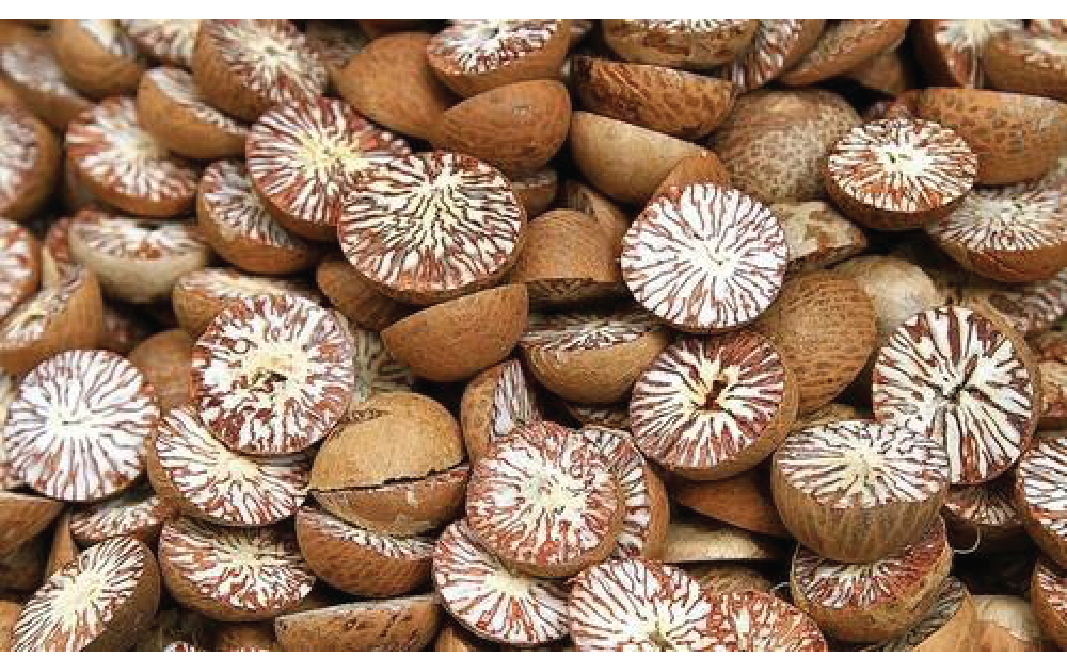


Pregnant women should avoid betel nut as the chances of harming fetuses are high. Since the chances of getting cancer are high thus betel nut should be consumed in mild doses only.In a few cases, betel nut has been found to cause low blood pressure and shortness of breath. Thus, people with asthma are strongly advised to not consume it. (1)
(1) http://https://www.lybrate.com/topic/betel-nut-supari-benefits-and-side-effects
- Disclaimer
"Information here is provided for discussion and educational purposes only. It is not intended as medical advice or product or ingredient review/rating. The information may not apply to you and before you use or take any action, you should contact the manufacturer, seller, medical, dietary, fitness or other professional. If you utilize any information provided here, you do so at your own risk and you waive any right against Culinary Communications Private Limited, its affiliates, officers, directors, employees or representatives.”
Description
Betel nut is a seed of the fruit of plant areca palm. It is also known as areca nut. It is cultivated in the regions tropical India, Bangladesh, Japan, Sri Lanka, south China, the East Indies, the Philippines, and parts of Africa. India is the largest consumer of betel nut. The areca nut-producing states in India are Karnataka, Kerala, Assam, Tamil Nadu, Meghalaya, and West Bengal. The outer husk of betel nut is coarse and matures from green to yellow-orange and may also contain patches of red. Within this, hard light brown nut called dried endosperm is present. Betel nuts have a chewy texture and a spice-like flavor similar to nutmeg and cinnamon. It stands at the fourth place as one of the most popular psychoactive substances in the world after nicotine, alcohol, and caffeine. The best season for the cultivation of betel nut is between June to December. The various varieties of betel nut that are cultivated in India are Subamangala, Mangala, Sumangala, Mohitnagar, Hirerhalli dwarf and Samruthi.